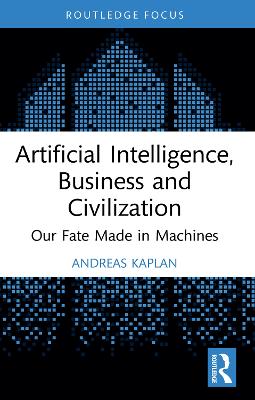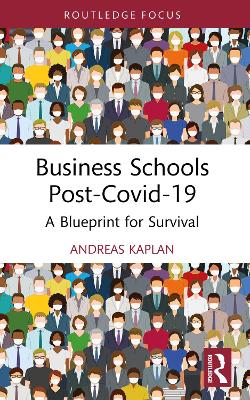Routledge Focus on Business and Management
2 total works
Artificial intelligence is shaking up economies around the world as well as society at large and is predicted to be either the best or worst thing to happen to humanity. This book looks at what exactly artificial intelligence is, how it can be classified, how it differentiates from other concepts such as machine learning, big data, blockchain, or the Internet-of-Things, and how it has evolved and might evolve over time.
Providing a clear and unbiased picture of artificial intelligence, the book provides critical analyses of the advantages and disadvantages, opportunities and threats of AI progress for business and civilisation. Solutions and possible directions of how humanity might deal with rapid development and evolutions will be given and discussed, and consider regulation, employment, ethics, education and international cooperation. Unlike existing literature, this book provides a comprehensive overview of AI based on detailed analysis and insight. Finally, several real-life examples from various sectors and industries, including for profit organizations, higher education, and government, will substantiate and illustrate the presented concepts, classifications, and discussions.
This book is of interest to researchers, educators, students, and practitioners alike who desire to understand AI in its broad lines and discover the latest research and studies within the field.
It all began when the world’s first business school, the European School of Commerce Paris (ESCP), was established in 1819. Criticism notwithstanding, business schools have since continued their path in higher education without facing existential metamorphoses. Covid-19, however, has accelerated business schools’ digital transformation, calling into question the concept of business school itself.
Business schools are in a new competitive landscape and profound structural changes seem inevitable. This concise text offers insights into how business schools should rethink their approach to management education, differentiate themselves from new players in the higher education market, and find innovative ways of doing things. The book is a survival toolkit for leadership teams across the world. It examines the rationale of business school and how it has evolved. The purpose of research is explained, and the teaching of management is explored. Kaplan analyzes the current business model in the digital environment. He looks at the business of accreditations and rankings and branding and community-building as strategies to address competition. The book concludes by looking at change leadership at business schools.
It will interest both leaders of established academic institutions and alternative educational providers from edtech and big tech planning to enter the management education market.

